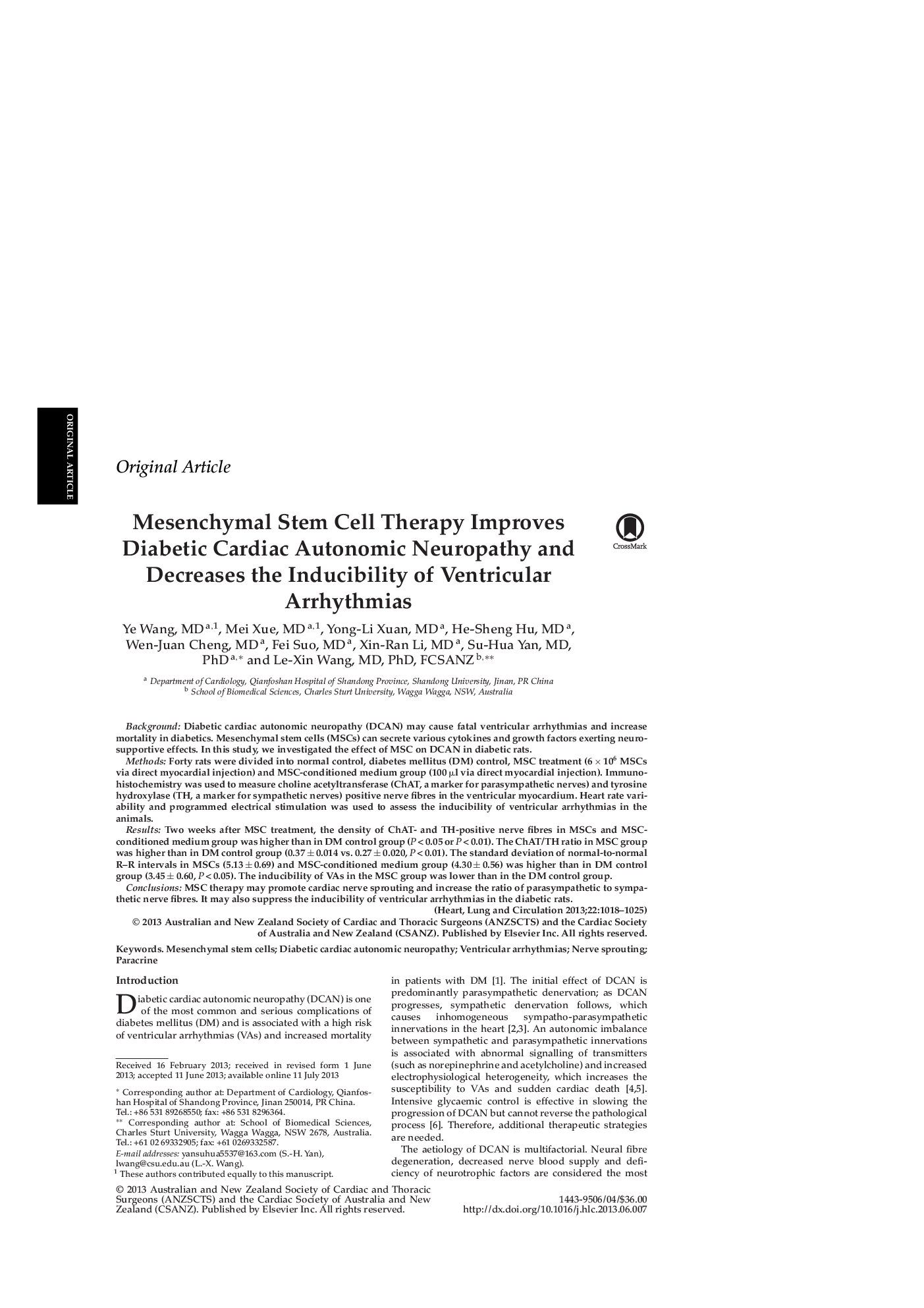| Article ID | Journal | Published Year | Pages | File Type |
|---|---|---|---|---|
| 2917237 | Heart, Lung and Circulation | 2013 | 8 Pages |
BackgroundDiabetic cardiac autonomic neuropathy (DCAN) may cause fatal ventricular arrhythmias and increase mortality in diabetics. Mesenchymal stem cells (MSCs) can secrete various cytokines and growth factors exerting neurosupportive effects. In this study, we investigated the effect of MSC on DCAN in diabetic rats.MethodsForty rats were divided into normal control, diabetes mellitus (DM) control, MSC treatment (6 × 106 MSCs via direct myocardial injection) and MSC-conditioned medium group (100 µl via direct myocardial injection). Immunohistochemistry was used to measure choline acetyltransferase (ChAT, a marker for parasympathetic nerves) and tyrosine hydroxylase (TH, a marker for sympathetic nerves) positive nerve fibres in the ventricular myocardium. Heart rate variability and programmed electrical stimulation was used to assess the inducibility of ventricular arrhythmias in the animals.ResultsTwo weeks after MSC treatment, the density of ChAT- and TH-positive nerve fibres in MSCs and MSC-conditioned medium group was higher than in DM control group (P < 0.05 or P < 0.01). The ChAT/TH ratio in MSC group was higher than in DM control group (0.37 ± 0.014 vs. 0.27 ± 0.020, P < 0.01). The standard deviation of normal-to-normal R–R intervals in MSCs (5.13 ± 0.69) and MSC-conditioned medium group (4.30 ± 0.56) was higher than in DM control group (3.45 ± 0.60, P < 0.05). The inducibility of VAs in the MSC group was lower than in the DM control group.ConclusionsMSC therapy may promote cardiac nerve sprouting and increase the ratio of parasympathetic to sympathetic nerve fibres. It may also suppress the inducibility of ventricular arrhythmias in the diabetic rats.
